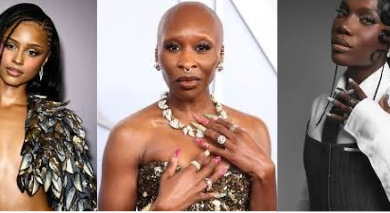#16DaysofActivism: Women’s destinies cannot be tied to poverty to coddle male ego

|
Getting your Trinity Audio player ready...
|
I remember anchoring at a relationship hangout in 2022. The men were asked if they would prefer their wives to have more money than they do– the responses were shocking! Many laughed uneasily before exclaiming, “Ah! For wetin?” Others were more emphatic, declaring, “Noooo! It can never happen. My woman no fit ever get money pass me oo!” Strong gestures and vehement expressions accompanied their words, leaving little doubt about their convictions.
Interested in what must have led to such a mindset, I engaged the few who were willing to share their concerns. It was clear that their backgrounds had a lot to do with it. The majority of them were either from homes with strong and well-to-do mothers or female relatives, or they had been in intimate relationships with economically buoyant women whom they claimed did not accord them due respect. For others, it was neither a family situation nor a personal experience. However, a lot of these views were based on perceived patriarchal values, which they were socialised into.
After hearing the strong opinions from the men about not wanting their wives to be wealthier, I decided to take the conversation further by posing a follow-up question: “What if your daughters became wealthier than their husbands?” This question brought about a range of responses. Some men hesitated, visibly conflicted. “Ah, if it’s my daughter, that’s different,” one said cautiously. “She’s my child, and if she’s doing well, that’s good for the family.” Others outrightly endorsed the idea, citing the benefits they would reap from a prosperous daughter. “Of course, I’d want her to be rich,” one man said with a laugh. “She’ll take care of me when I’m old.” However, a few of them still stood firm, declaring that such a scenario might create issues in her marriage, just as they feared it would in theirs.
Curious about the women’s perspectives, I asked the women if they would love to be richer than their husbands. Their reactions were just as diverse. Some women admitted that being wealthier than their husbands could be empowering, but they feared it might strain the relationship. “I wouldn’t mind being richer,” one said with a soft smile, “but only if he’s mature enough to handle it.” Others felt differently. “Money isn’t what defines me as a woman,” one woman confidently stated. “I’d rather have a supportive husband who respects me, regardless of our financial status.”
On the other hand, I posed the comments of the men to some women for their reflections, and they were quick to challenge the notion that wealth equates to unhealthy power or disrespect in a relationship. “The problem isn’t about money; it’s about one’s mindset,” one remarked. “If a man feels threatened by a successful wife, then he has some insecurity issues to deal with.”
“I’m not a prey to wealth, nor am I afraid of owning it because of the relationship that comes with marriage,” a lady boldly declared, encapsulating the spirit of the conversation. Women’s destinies cannot be tied to poverty in order to achieve subjugation, argued others, and they agreed that women need to reclaim their identity as humans and challenge the societal norms that perpetuate economic abuse and inequality.
This article was submitted by Gender And Development Action, an organisation committed to gender equity, the pursuit of sustainable development, and social justice in Nigeria. The submission is the organisation’s contribution to NFM’s #16DaysofActvisim campaign against male violence against women and girls.





